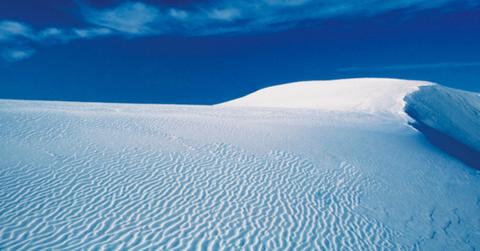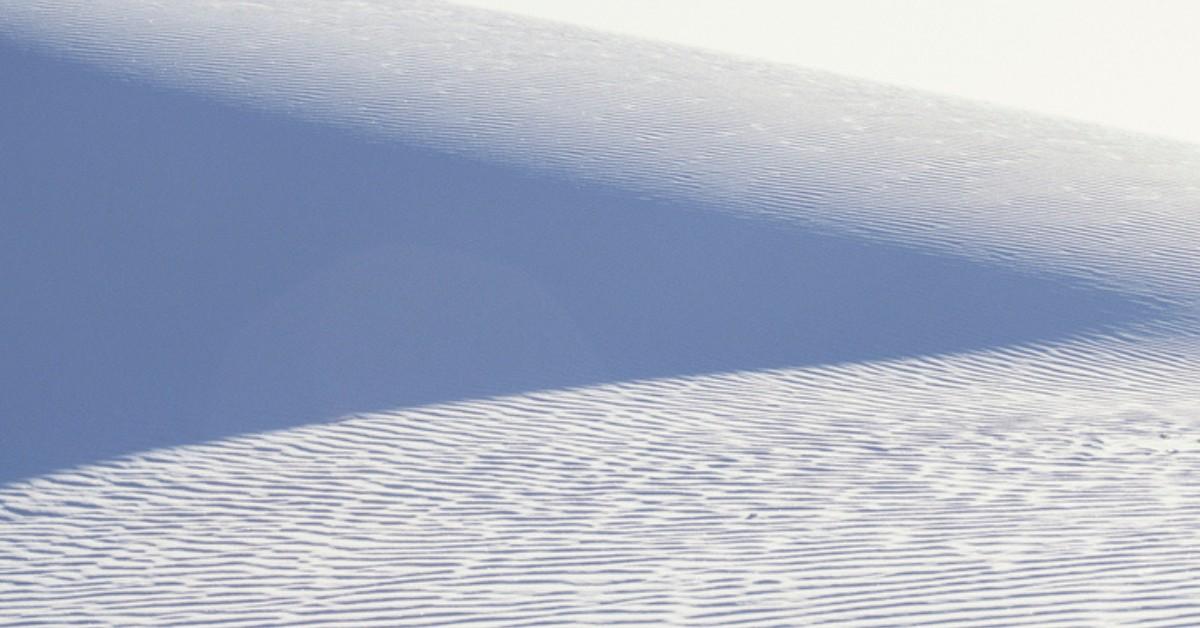The Best Time to Visit White Sands National Park Might Surprise You
White Sands National Park has the largest gypsum dunefield in the world.
Published June 26 2024, 2:38 p.m. ET

The dunes and sky at White Sands National Park.
When it comes to America's National Parks, the big names — like Yellowstone National Park and the Grand Canyon — get all the attention. But did you know there are actually 63 of these beautiful locations? And some of them are total hidden gems, like New Mexico's White Sands National Park. The stunning, sandy landscape spans 275 square miles, and it's home to some seriously impressive gypsum sand dunes.
That's why White Sands National Park is an absolute must for anyone planning a vacation out that way. But, before you book your hotel and start packing your bags, you're going to want to know when the best time to visit White Sands National Park is. Read on to learn everything you need to know about planning your trip.

When is the best time to visit White Sands National Park?
Many believe the best time to visit White Sands National Park is at the very start of spring or very end of fall.
The writer behind the Bright Standards blog says that these are the most temperate times weather-wise, as well as the time you're least likely to run into big crowds (that would be spring break, when the blogger says visitors tend to come out in droves).
Here's a look into what each season is like at White Sands National Park.
What's White Sands National Park like in the summer?
As you may have guessed from the name and location, White Sands National Park is a desert. Because of this, you can pretty much assume that summers are going to be incredibly hot, and therefore not exactly welcoming for anyone who wants to stroll around the park's famed sand dunes. According to the National Park Service (NPS), temperatures reach an average of 95 degrees during the months of June through August, with some days even breaking into the triple digits.
The heat isn't all that warmer weather brings; from July through September, the park sees it's rainy season. During those months, pop-up thunderstorms are incredibly common, which can put a major damper on your trip. After the rain passes, visitors to the park can expect to experience a bit of a cooldown, with temps dipping down to 65-80 degrees during the day and a chilly 40 degree average for most nights.
What is White Sands National Park like in autumn?
Many travelers enjoy visiting White Sands National Park in the fall, as you will experience moderate temperatures. According to Grounded Life Travel, the average low-high temperature in White Sands National Park in October is 41-79 degrees.
What is White Sands National Park like in winter?
From there the park plunges into winter, which is surprisingly chilly for a New Mexican desert. The NPS says that from December through February, the days hover around 60 degrees while the evenings drop below freezing. Those cold temperatures can even bring a little rain (and sometimes snow) into the park, creating a very brisk experience as the wind whips across the sand dunes.
What is White Sands National Park like in the spring?
After that, park temperatures begin to warm up, with March through May hitting daytime averages of around 75 degrees and nighttime temps that like to hover around 40 degrees. But that spring thaw also brings a bit of wind along with it, and the NPS says that sometimes gusts can come crashing through the park as fast as 50 miles per hour!
What time of day is best to visit White Sands National Park?
It may be hard to imagine, but you'll be able to see just about everything that the park has to offer in under a day, so you don't need to plan to spend too much time at the park. Bright Standards says that you can get in and see the sights, take a drive around, and even dip your toes into the über-soft gypsum sand that covers the miles of parkland in just a few hours.
Because of that, you may want to plan your day around the heat of the sun, which would mean coming earlier in the day or after the sun has begun to set. As for those who are hoping to get a peek at some wildlife during their visit, well you'll need to be at the park during the early morning or later in the afternoon. Just remember, no matter which month or time of day you plan your visit, sunscreen and extra water are a must for a safe, happy, and enjoyable visit!